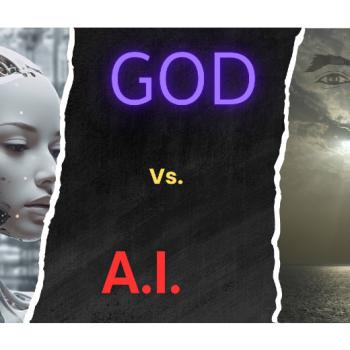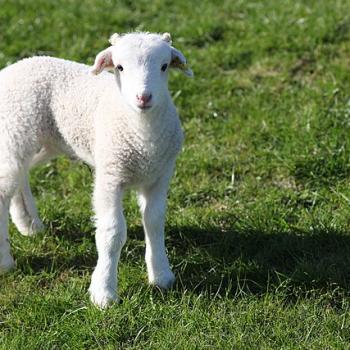Animistic systems rarely have explicit models of a purely animistic ‘extra dimension' or whatever, through which the powers inherent in physical phenomena act on the world. Where such animistic dimensions exist they tend to become identified either with alternative states of consciousness that the shaman induces by various means, or with some sort of spirit realm.
The hypothesis of spirits arises naturally out of the human propensity to form a ‘self-image' and a ‘theory of mind.' We would find it almost impossible to live without a self-image. Somehow we have to develop a model of ourselves inside of our heads so that we can separate our perceptions into those relating to self and to those relating to the outside world. As we develop, our self-image becomes more sophisticated as we incorporate abstract concepts into it, and we become very dependent upon it to structure our lives; we cannot imagine its absence and so we may come to believe that it must exist as an immortal soul. You can turn off the self-image with certain mystical practices or large doses of hallucinogens, and then you seem to become everything that you perceive; the object placed in your hand becomes part of your body, you become one with the tree in your field of vision, or with a religious notion in your thoughts. People with a seriously impaired self-image cannot act effectively in the world and we regard them as mad.
We would also find it very difficult to deal with our personal worlds if we did not, at an early age, develop the hypothesis that other people had intentions and perceptions that their actual behavior often concealed or only partially revealed. Autistic people seem to lack this ability to various degrees of severity.
Our inbuilt propensity to form a self-image and a theory of mind leads quite naturally to the idea of souls and spirits and gods, or ‘sky fairies' as some atheists unkindly call them.
We cannot imagine ourselves dead nor what happens to the self we ascribe to other people when they die. We perceive the natural world as capricious and perhaps therefore possessed of minds (gods) or perhaps one big mind (God).
The theory of spirits, or spiritism, crept up quite quickly on pure animism and held a dominant position in magical theory until scientific analogies began to take over. The old pagans saw mind everywhere, and personified natural phenomena as gods -- household gods for small matters and bigger gods for more serious matters like storms, mountains, oceans, cities, and the afterlife. Having imputed mind everywhere, the ancients could at least try to enter into negotiation with it. Prayer and sacrifice to the big gods thus became the staple religious activities whilst magic offered some latitude for trying to push around and command the smaller ones.
Monotheism arose as the pagan systems collapsed under a cacophony of too many gods and an expanding sense of self-image. Pagans did not attribute their lusts and their warlike impulses, for example, to their own sense of self, but rather to the gods, so they could only expand their own sense of agency and identity by adding more gods to their pantheons to explain themselves to themselves. Replacing all this with a unitary deity had the advantage of enlarging the self-image, but at the expense of condemning a large amount of socially dubious behavior to the demonic realms. You do not see many temple prostitutes in monotheist institutions for example. However this in itself brought a political dividend. Social control gets much easier if you only have one priesthood, one consensus identity, and one set of rules.
Magic within the monotheistic spiritism becomes legally perilous. The priesthood rarely tolerates freelance negotiation with the spirit realm so folk magic goes underground, but the priests themselves usually develop a characteristic type of spiritist magic of which we see examples in Kabbala and Goetia and the Islamic Djinn or Genies. Here the magician commands lesser spirits by invoking the power of God. As most monotheisms (at least in their youth) tend to leave a host of lesser spirits in charge of mundane matters, the priest/magician can conjure for almost anything by the double proxy of God and lesser spirit.
Given the belief that mind suffuses everything, this all makes perfect sense. In modern terms it still makes a certain amount of magical sense if we assume that ensigilising phenomena as spirits renders them easier for the mind to interact with. The spiritist paradigm that sees mind in all things will probably always influence human thought if only because human thought remains the tool by which we investigate the world. Not a few scientists have exclaimed that the universe consists entirely of thoughts or mind stuff, but they had mostly been calculating too hard or overdoing the nitrous oxide.
In terms of its value as a magical theory, the spiritist paradigm has very little real explanatory or predictive power. We all know what ‘the spirit realm' means -- it means whatever the spiritist wants it to mean. In other words it has fantastically complicated and more or less arbitrary and variable properties. Thus it cannot tell us anything about possible or impossible, or probable or improbable forms of magic.




